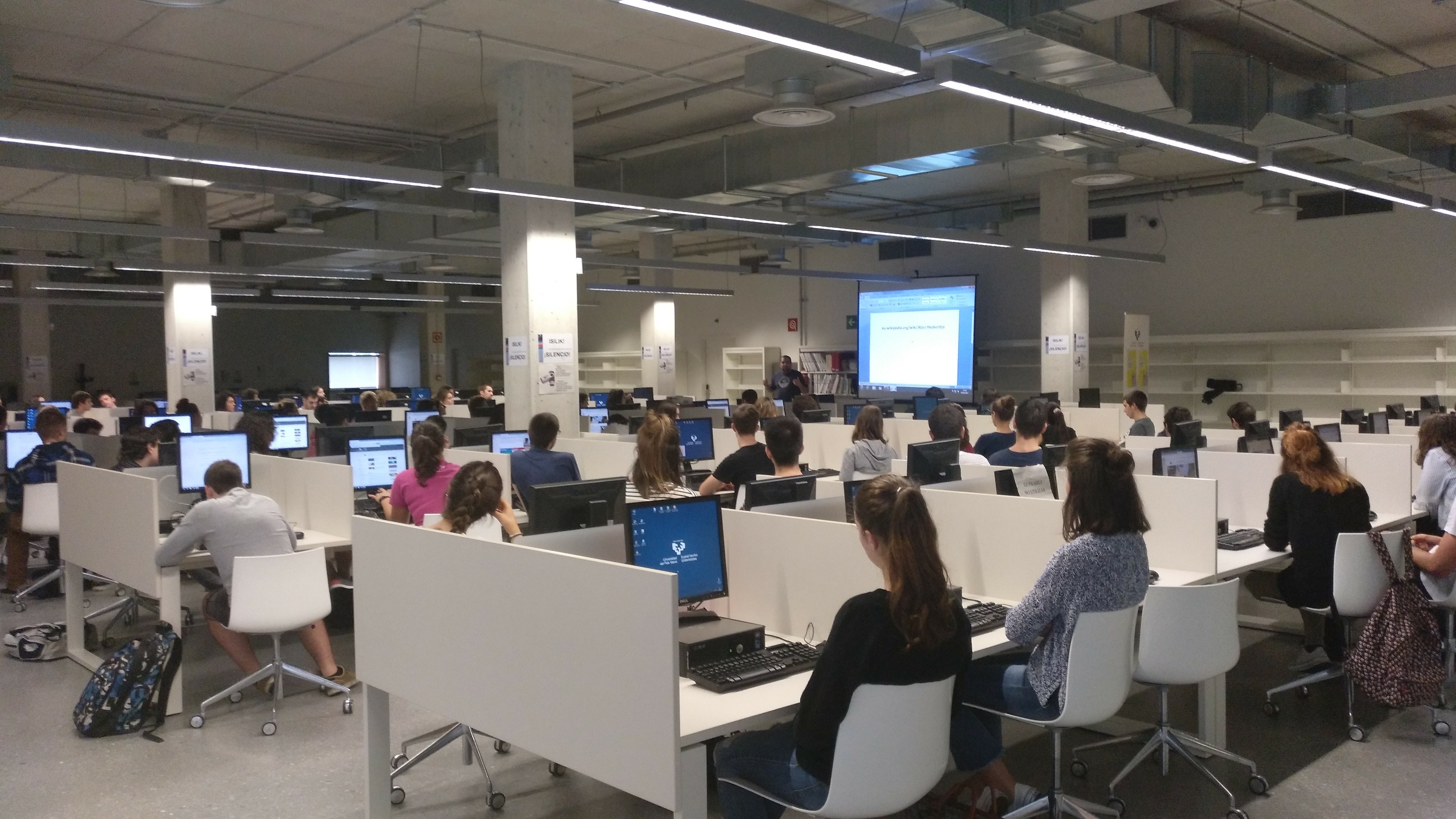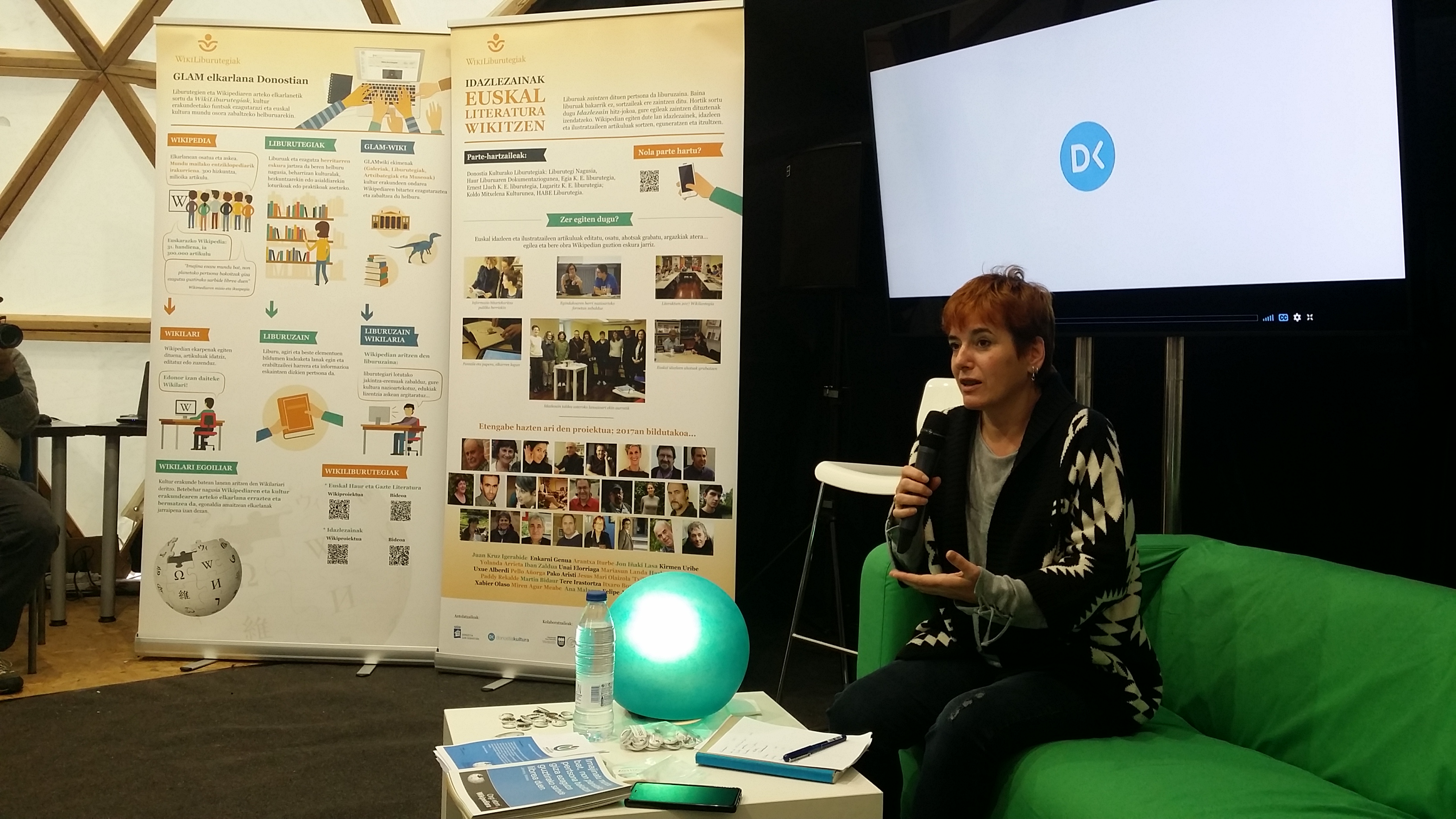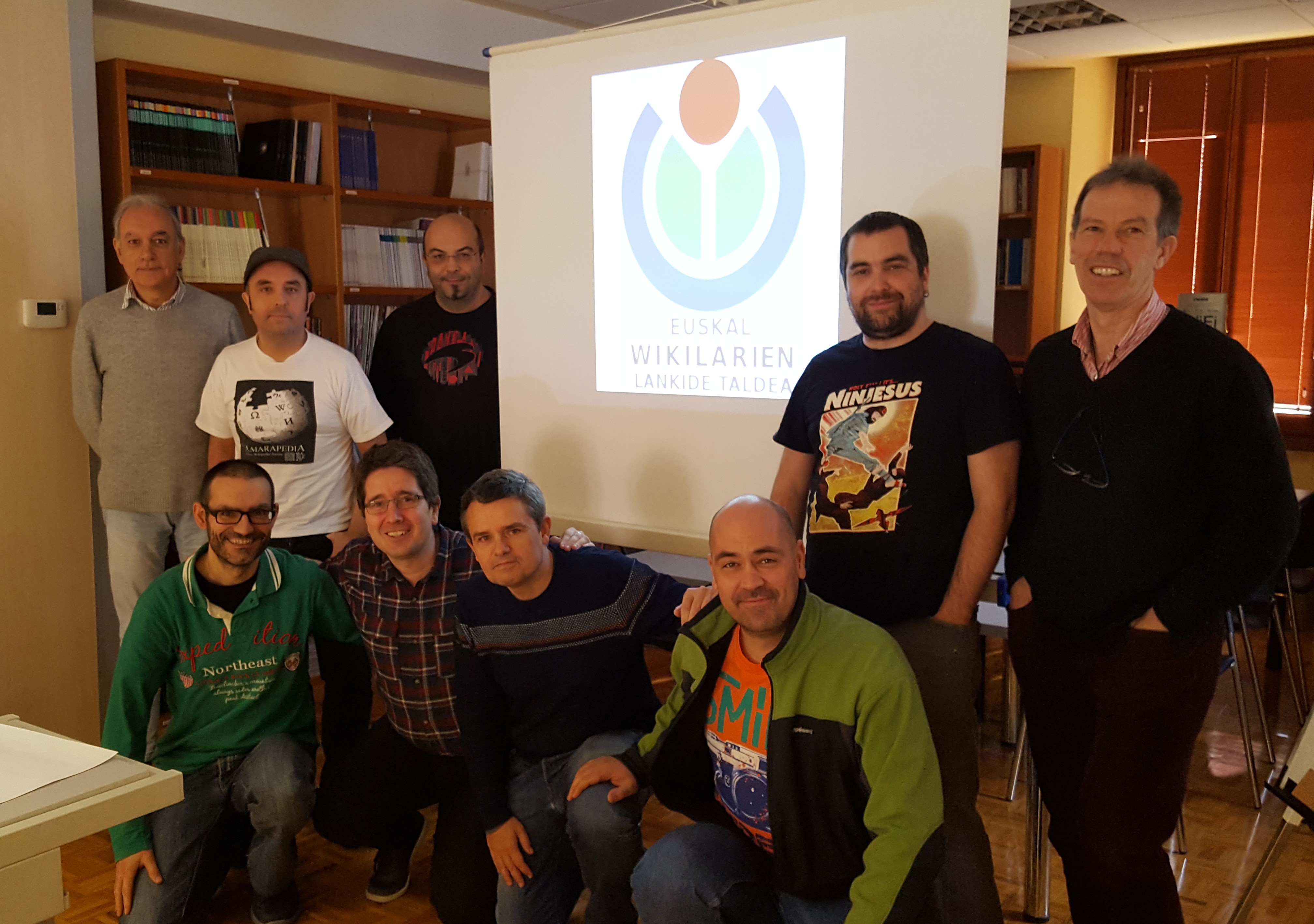In June 2016, the Basque Wikipedia reached its 250,000th article with the creation of the Egiptyan dog “Abuwtiyuw”, somehow a feat we celebrated in the context of the 2016 European Cutural Capital Donostia – San Sebastián. The Basque Wikipedia was officially established in November 2003. We have come a long way since then and since the 25,000 articles of January 2008, when Basque Wikipedia received the weekly Argia‘s Award. Following the formation of the Basque Wikimedians User Group in 2016, the project has seen a surge that has struck a chord with the Basque media, eventually spurring an agreement with the Basque Government in the summer of 2017 to help promote its activity.

Editing workshop in San Sebastián. CC BY-SA Theklan
The vision of our project adheres to the motto of the whole Wikimedia movement: to make the sum of all human knowledge freely available to everyone, in a world ever more parcelled out by commercial and copyright hurdles. Everyone is encouraged to participate in the Basque project, the Euskarazko Wikipedia, driven by volunteers. For content and design, the project relies on the effort of these volunteers who add their share of knowledge into the common project. We are intent on having Basque, local knowledge “straight from the horse’s mouth” taken over into this mainstream platform, surmounting potential obstacles and censorship wherever it could happen. Editing should be smooth, but watch out, someone else may dispute your contribution. There are basic rules everyone must comply with to add reliable information, and there is the talk page to work out different points of view.
Wikipedia is incremental, an ever-building structure, ever growing, never totally complete. So is Basque Wikipedia. Just take a look at the position that Basque Wikipedia has gained in the international scene in recent years; it ranks 31st in the list of projects worldwide when it comes to the number of articles, ahead of Greek or Danish and just behind Turkish. There are over 6,000 languages in the world; 300 of them have Wikipedia projects, and Basque is up there running high. This is a very relevant indicator for Internet engines to make their business decisions. The future lies with those who adapt to the challenges of the shifting times, and language and linguistic technology is no exception. We do have a standard language, euskara batua; Txillardegi, Mitxelena and other forerunners laid a cornerstone. Other minority languages are lagging somewhat behind, take for instance WP projects of American vernacular languages, still facing the shortcomings of a missing standard; Berbers are struggling with language script, rendering their pursuit for a valid and functional project a bit more difficult, etc.

Presentation at the Durango Book Fair. CC BY-SA Xabier Cañas
Metrics measure the number of articles and bytes added to the project. It also reveals that we do have 21 active editors with more than 100 edits per month and one of the highest rates of editors per million speakers, second only to the Estonian Wikipedia. There was an average of 2,592 hits per hour in November, a figure that does not satisfy us; Estonians scored 8,909 views, Catalans 14,415. Personal perceptions and insufficient rate of views sent us waves about the state of many articles in Basque, leading us to focus on their improvement, especially first sentences and lead sections (‘lede’). Summarizing contents in a clear, concise and engaging way, that is our challenge to cater to the needs of schoolchildren (12 to 16-year-olds), undergraduates and ‘grown-ups’, and get them to see the Basque WP as an effective and accessible source of knowledge.
The Basque Wikimedians Education Program is the outcome of the approach to academia initiated by the Basque Wikimedians User Group in 2016 with the aim of creating and/or improving course-specific article content by means of student contribution monitored by instructors and inter-disciplinary collaboration. Wikipedia’s community outreach is not confined to cooperation with universities (the Basque public university EHU and the Basque Summer University UEU) but also with libraries and museums, the GLAM (acronym for Galleries, Libraries, Archives and Museums), specifically centered in San Sebastián and now extending its roots to Bayonne, an alliance pattern encouraged by the Wikimedia Movement. It turns out to be advantageous to both the Euskarazko Wikipedia and the relevant knowledge institutions, by expanding their social impact and diffusion. Keeping editorial independence, article quality, promising new gadgets and devices like automatic infoboxes based on Wikidata, content translation and text-to-speech, gender gap challenges, GLAM and academic alliances, the Vikidia, cooperation with minority languages, these are the challenges that are shaping the skyline of the Basque Wikipedia for years to come.

Basque Wikimedians User Group Meeting in Eibar. CC BY-SA Ksarasola


Be the first to comment on "The Basque Wikipedia, Local Knowledge Gone Global (and back)"